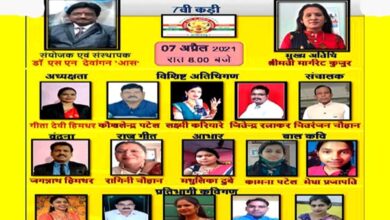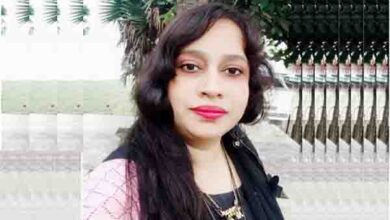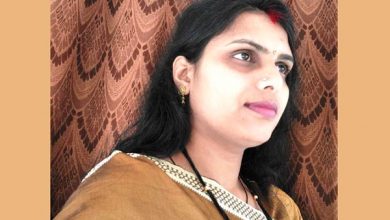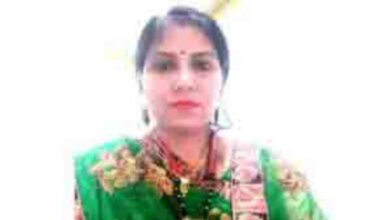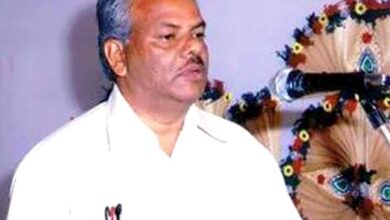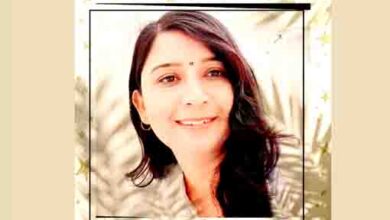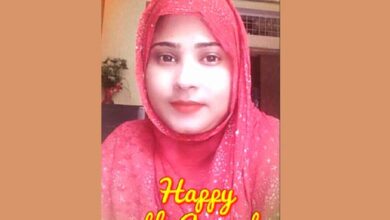जातीय शोषण का हलफनामा jaateey shoshan ka halaphanaama
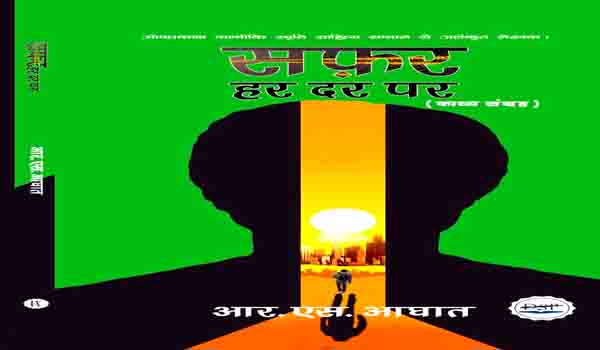

©आर एस आघात, अलीगढ़, उत्तर प्रदेश
परिचय- बुद्ध शिक्षा प्रसार समिति अलीगढ़ के प्रचार सचिव, रन फॉर अम्बेडकर के अध्यक्ष हैं.
आर॰ एस॰ आघात के कविता संग्रह ‘सफर हर दर पर’ में कुल छप्पन कविताएं हैं। इन कविताओं की विषय वस्तु का मूल स्वर प्रतिरोधी है। यह प्रतिरोध जातीय शोषण की क्रूरतम सच्चाई से जन्मा है। इन कविताओं ने ऐसे अनुभवों को रचा है जिसने जाति की प्रताड़ना को स्वयं झेला है। साथ ही इस संग्रह में प्रकृति और प्रेम संबंधी कविताएं भी हैं जो कि कविता संग्रह के शीर्षक ‘सफर हर दर पर’ को चरितार्थ करता हुआ नजर आता है। भारतीय समाज में व्याप्त जातीय मानसिकता का उन्मूलन करने हेतु आर॰ एस॰ आघात ने ‘मानव और जाति’ जैसी कविताओं का सृजन किया है जो कि जाति के दुष्प्रभावों का यथार्थ अंकन करती है। यह कविता जाति को नकार कर मानव को केंद्र में रखने की पैरवी करती है। उसके लिए जाति घृणा, अन्याय और अत्याचार का पर्याय है-
“जाति से रहती घृणा जाति से होता अन्याय जाति से करते अत्याचार जाति से ही होता स्त्रियों से खुलेआम व्यभिचार लेकिन सत्य है कि भारत में सबसे ऊपर है मानव जीवन में जाति।”
यह कविता- संग्रह दलित समाज में चेतना का संचार कर उन्हें अपनी दयनीय स्थिति से अवगत कराना चाहता है। वंचित समाज के परिप्रेक्ष्य में चेतना एक बेहद जरूरी मुद्दा होता है क्योंकि जब तक चेतना नहीं होगी तब तक वंचित समाज अपनी शोषण की अदृश्य बेड़ियों को देखने में असमर्थ रहेगा। ‘तम को दूर भगाओ तुम’ इस दृष्टि से महत्वपूर्ण कविता है। यह कविता भारतीय समाज में व्याप्त तम रूपी जातीय शोषण के प्रदूषण को दलित समाज के मस्तिष्क से निकाल कर उन्हें चेतना सम्पन्न और समर्थ बनाने का उद्घोष करती है –
“तम को दूर भगाओ तुम अपने मस्तिष्क से अपने स्मरण से अपने व्यवहार से क्योंकि इसी तम ने उजाड़ा है तुम्हारा सुख-चैन तुम्हारा घर और तुम्हारा अस्तित्व
आर॰एस॰ आघात एक सजग और संवेदनशील कवि हैं। उनकी नजर समसामयिक घटनाओं का संज्ञान लेती है। ये घटनाएँ उनके संवेदनशील हृदय को झकझोर देती हैं और उनकी कलम की रचनात्मक परिणति ‘हाँ मैं किसान हूँ’, ‘सफाई अभियान’, ‘वोटर बिकता है बेदाम’, ‘गली के नेता’ आदि कविताओं में होती है। सन् 2020 में भारतीय संसद द्वारा पारित किए गए तीन कृषि अधिनियमों का भारतीय किसानों ने जमकर विरोध किया। करीब साल भर चले इन विरोध प्रदर्शनों में कई किसानों ने अपनी जान गवां दी। किसान अपने खून और पसीने को बहाते हुए तपती दोपहरी में कड़ी मेहनत कर अन्न बोता है। वह अन्न दाता होता है। वह स्वयं को खपाकर अन्न का उत्पादन करता है किन्तु बदले में उसे क्या मिलता है ? उसके द्वारा उगाई गई फसल का ठीक दाम भी उसे नहीं मिलता, वह घोर गरीबी में अपना जीवन बिताता है, सरकार उसकी दयनीय स्थिति पर ध्यान नहीं देती। ऐसे में किसान की मनोस्थिति का चित्रण आघात जी ने ‘हाँ मैं किसान हूँ’ नामक कविता में किया है-
“कभी खाद-बीज तो कभी दवाओं के इंतजार में,
तपती गर्मी से झुलसा हुआ इंसान हूँ…हाँ मैं किसान हूँ…।
मेरी मौत की वजह है सरकार की मक्कारी,
पेड़ की डाली पर लटककर मरता हुआ इंसान हूँ… हाँ मैं इंसान हूँ…।”
मनुष्य और समाज का बहुत गहरा संबंध होता है इसलिए समाज में घटित होने वाली घटनाएँ उसकी चेतना को प्रभावित करती हैं। चेतना मनुष्य के भीतर मौजूद एक ऐसी शक्ति का नाम है जिसमें परिस्थितियों की परख और समझदारी के भाव से विकसित हुआ दृष्टिकोण दर्ज रहता है। कवि सामाज का एक संवेदनशील प्राणी होता है, समाज में घटित होने वाली घटनाएं जितना एक कवि के मन को मथती हैं उतना अन्य को नहीं। कवि की चेतना उसके सामाजिक परिवेश का ही प्रतिफलन होती है और यही चेतना उसके साहित्यिक कर्म को प्रभावित करती है। कवि आघात भारतीय समाज में व्याप्त जातीय शोषण और उनके परिणामों से भली-भांति परिचित हैं-
“आज चला है सफाई अभियान
नहीं है किसी का धर्म-ईमान
कल से फिर दहल उठेगा,
दलितों के प्रति इनका गुस्सा,
पीड़ितों के प्रति उनकी घृणा,
वंचितों को नहीं कभी सम्मान…आज चला है सफाई अभियान।”
दलित समाज की बौद्धिक क्षमता को नजरअंदाज करने में धार्मिक समीकरण बहुत बड़ी भूमिका निभाते हैं। धार्मिक समीकरण एक ऐसा भाव बोध निर्मित करते हैं जिसमें शोषित समाज अपनी यथास्थिति को स्वीकार करता है और उसकी बौद्धिक क्षमता कहीं कुंद हो जाती है किंतु इस संग्रह की कविताओं में शोषण का बोध अंतर्हित है। कवि तमाम प्रकार के षड्यंत्रों से भली-भांति परिचित है। उसमें चेतना है जिसका संचार वह वंचित समाज के भीतर करना चाहता है। भारतीय संविधान प्रत्येक व्यक्ति को अभिव्यक्ति की स्वतंत्रता का अधिकार देता है। संवैधानिक अधिकार के कारण ही कवि ‘मुझे कुछ कहना है’ का सामर्थ्य अर्जित कर पाया है-
“मुझे कुछ कहना है,
आपका तिरस्कार
आपका अपमान
आपका भेदभाव
आपका अन्याय
मुझे नहीं सहना है।”
कवि अपनी कविताओं के माध्यम से वंचित तबके के भीतर चेतना की मसाल जलाने हेतु तत्पर है। सन् 1920 ई० में डॉ० अंबेडकर ने ‘मूकनायक’ पत्रिका निकाली थी। यह पत्रिका जातीय शोषण से त्रस्त और अशिक्षित समाज की आवाज बनी थी किंतु यह बात आजादी से पूर्व की है। भारत की आजादी के पचहत्तर साल बाद भी ऐसे बहुत से सामाजिक घटक हैं जिन तक शिक्षा की रोशनी नहीं पहुंच पाई है किंतु बाबा साहब के प्रयासों से संवैधानिक संरक्षण के तहत जिन तक शिक्षा की रोशनी पहुंची है उन्होंने अपने इतिहास का अध्ययन किया है जिसमें उन्होंने पाया है कि –
“मैंने तो पाया मेरे वंशजों को,
मिला अन्याय,
दुख, शोषण,
तिरस्कार मेरे पूर्वजों को…”
आज उसके पास शिक्षा है। कलम की ताकत है। कलम की ताकत का उसे भान है। ‘कलम से क्या लिख दूं’ कविता में कवि ने दलित समाज की ऐतिहासिक स्थिति का चित्रण करते हुए उसके यथार्थ को साकार किया है। साथ ही वह उन तमाम शोषण की कहानियों को लिख देना चाहता जो कि दलित समाज की दुर्गति का कारण बनी है।
पितृसत्ता ने धार्मिक ग्रन्थों की आड़ में ईश्वरीय विधान के नाम पर ऐसा खोल तैयार किया है जिसमें स्त्रियों की मानसिकता भी उन्हीं मूल्यों को आत्मसात कर अपने जीवन की इतिश्री समझती है जिन मूल्यों को पुरुष समाज ने अपनी स्वार्थ सिद्धि हेतु रचा है। डॉ॰ भीमराव अंबेडकर के चिंतन में स्त्री मुक्ति के प्रश्न निरंतर सक्रिय थे। उनका स्पष्ट मानना था कि किसी भी समाज के विकास को देखना है तो उस समाज की स्त्रियों के विकास को देखिए। उन्होंने भारतीय संविधान स्त्री अधिकारों का विशेष ध्यान रखा है। उन्होंने स्त्रियों के हक में ‘हिन्दू कोड बिल’ के मार्फत उनके जीवन स्तर में सुधार करने हेतु कई प्रावधान किए थे, जिसमें उन्होंने संपत्ति का अधिकार, तलाक का अधिकार, वर चुनने का अधिकार, शिक्षा का अधिकार, मातृत्व अवकाश का अधिकार आदि शामिल थे। संविधान का नारी उत्थान में बहुत बड़ा योगदान है। इस संग्रह की कुछ कविताएं स्त्री केन्द्रित हैं जिनमें ‘सुनो तुम नारी हो’, ‘बेटियों की खूबियाँ’, ‘अबला मैं कैसे तुझे भूलूँ’, ‘दहेज का कलंक’ आदि का नाम प्रमुखता से लिया जा सकता है।
‘अबला मैं कैसे तुझे भूलूँ’ कविता में कवि ने स्त्री के महत्व को रेखांकित किया है। वहीं ‘दहेज का कलंक’ कविता दहेज रूपी दानव की बखिया उधेड़ती हुई नजर आती है। दहेज प्रथा समाज की एक क्रूरतम प्रथा है। इस प्रथा ने स्त्री समाज का बहुत भारी नुकसान किया है। इस प्रथा के चलते एक लड़की अपने माँ-बाप के लिए बोझ सरीखा महसूस होती है। दहेज न दे पाने की स्थिति में उन्हें मानसिक पीड़ा से गुजरना पड़ता है। विवाह के समय जिस प्रकार दहेज का तांडव रचा जाता है उसे कवि ने अपनी कविता ‘दहेज का कलंक’ में इस प्रकार चित्रित किया है-
“देख ये बेटा है गौरा साधुराम का,
20 किले है जमीं पर न किसी काम का।
सिर्फ खातिर रिटायर्ड बाप की,
आस रहती मोटी रकम की।”
पितृसत्ता के चलते स्त्री शोषण की अनेक परतें समाज में मौजूद हैं। लिंग के आधार पर स्त्री जाति की सामाजिक भूमिकाएँ बदल जाती हैं। ‘सुनो तुम नारी हो’ कविता में कवि ने स्त्रियों को अपनी शक्ति का बोध कराने का प्रयास किया है। यह कविता उन्हें संघर्ष के लिए प्रेरित करती है। बाबा साहब के अथक प्रयासों से संविधान के रूप में सभी को शिक्षा का समान अधिकार प्राप्त है। इसलिए कवि स्त्री समाज को प्रेरित करते हुए कहता है-
“मुझे लगता है कि
तुम्हें तोड़ना चाहिए
दायरा घर-गाँव
परिवार-समाज का जिससे तुम हारी हो।”
स्त्री का मातृ रूप सबसे खूबसूरत माना जाता है। मातृ रूप में वह समर्पण, त्याग और प्रेम की मूर्त होती है। इस दृष्टि से ‘माँ का त्याग’ बहुत ही संवेदनशील कविता बन पड़ी है। आधुनिक जीवन शैली और रोजगार ने व्यक्ति को अपने परिवार से अलग कर दिया है। कवि अपनी माँ को याद करते हुए कहता है-
“तेरे टिफिन की दो रोटियाँ बाजार में बिकती नहीं,
महंगे ढाबों के खाने से मेरी भूख भी मिटती नहीं,
प्यार से तूने जो बनाईं थीं वो सुखी रोटियाँ,
उन रोटियाँ सी महक मुझे तंदूरी में दिखती नहीं।।”
दलित उत्पीड़न भारतीय समाज का एक तथ्य है। जिसे सरकारी आंकड़े भी प्रमाणित करते हुए नजर आते हैं। राजस्थान अपराध ब्यूरो के अनुसार महिलाओं के साथ होने वाले बलात्कारों और हत्याओं में बढ़ोत्तरी हुई है। साथ ही बहुत से ग्रामीण क्षेत्रों में दलित समाज का व्यक्ति यदि घोड़ी पर चढ़ता है तो उस पर हमला होता है, यदि कोई दलित मूंछ रख लेता है तो उसे गोली मार दी जाती है। ऐसी तमाम घटनाएँ कवि के मन को झकझोर कर रख देती हैं। कवि समाज में व्याप्त मानवता को शर्मसार करने वाली तमाम बुराइयों जैसे जातिवाद, लिंग-भेद, अशिक्षा, भ्रष्टाचार, बेरोजगारी और भुखमारी की होली जला देना चाहता है। डॉ० अंबेडकर ने आजादी मिलने के बाद कहा था कि अब पिछड़ी-दबी जातियों के बच्चों में पढ़ने की इच्छा शक्ति बढ़ रही है। इसलिए राज्य द्वारा उन्हें सस्ती गुणवत्ता पूर्ण उच्च शिक्षा उपलब्ध कराई जाए, किन्तु उनका यह सपना आज भी अधूरा है। ‘मुझे जलानी है होली’ कविता की कुछ पंक्तियाँ देखिए-
“फैल रहा है जातिवाद समाज में जहरीली हवा की तरह
मुझे जलानी है होली उस जातिवाद की।।
फैली है अशिक्षा समाज में बीमारी की तरह,
मुझे जलानी है होली अशिक्षा की।।”
यह कविता-संग्रह दलितों की यातना का यथार्थ चित्रण कर उसे एक सकारात्मक स्वर देने का प्रयास करता है। साथ ही ब्राह्मणवादी मानसिकता का पर्दाफ़ाश कर उसके भीतर मौजूद संवेदना के बीजों को अंकुरित करना चाहता है। इन कविताओं में चेतना और संवेदना से समन्वित एक ऐसा विमर्श उभरता है जिसमें दलित प्रश्न प्रश्नवाचक शैली के रूप में प्रस्तुत होता है। कवि के भीतर एक आक्रोश है किन्तु वह कहीं भी अपना संतुलन नहीं खोता है। उसका उद्देश्य मात्र पाठक को संवेदनशील बनाना है और कविता की ताकत भी यही है जो पाठक को प्रभावित करने की क्षमता रखती है। आघात जी की कविताएं हमें सजग करती हैं और वंचित समाज की सशक्तिकरण का माध्यम बन संघर्ष की प्रेरणा देती हैं।
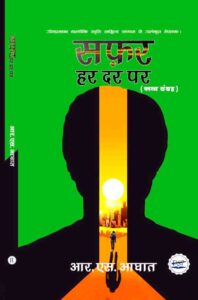
Affidavit of Caste Exploitation
There are a total of fifty six poems in the poetry collection ‘Safar Har Dar Par’ of R. S. Trauma. The basic tone of the subject matter of these poems is resistant. This resistance is born out of the brutal reality of caste exploitation. These poems have created experiences that have themselves faced the oppression of the caste. Along with this, there are also poems related to nature and love in this collection, which is seen realizing the title of the collection of poems, ‘Safar Har Dar Par’. In order to eradicate the caste mentality prevalent in Indian society, RS trauma has created poems like ‘Man and Caste’, which accurately depicts the ill effects of caste. This poem advocates for keeping human at the center by rejecting caste. For him caste is synonymous with hatred, injustice and tyranny.
“Hatred by caste, injustice done to caste, atrocities against caste, openly adultery with women, but the truth is that caste is at the top of human life in India.”
This collection of poems seeks to instil consciousness in the Dalit society and make them aware of their pathetic condition. Consciousness is a very important issue in the perspective of the deprived society because unless there is consciousness, the deprived society will be unable to see its invisible fetters of exploitation. ‘Tum ko far ko tum’ is an important poem from this point of view. This poem proclaims to remove the pollution of caste exploitation prevailing in Indian society from the mind of Dalit society and make them aware and capable.
,
“Keep Tama away from your mind with your remembrance from your behavior because this Tama has ruined your happiness and peace, your home and your existence.”
RS Trauma is an alert and sensitive poet. His gaze takes cognizance of contemporary events. These incidents shake his sensitive heart and the creative culmination of his pen is in poems like ‘Yes I am a farmer’, ‘Safai Abhiyan’, ‘Voter Bikta Hai Bedam’, ‘Gali Ke Neta’ etc. Indian farmers strongly opposed the three Agriculture Acts passed by the Indian Parliament in 2020. Many farmers lost their lives in these protests that lasted almost a year. The farmer, shedding his blood and sweat, sows food hard in the scorching afternoon. He is the giver of food. He consumes himself and produces food, but what does he get in return? He does not even get a fair price for the crops grown by him, he lives his life in extreme poverty, the government does not pay attention to his pathetic condition. In such a situation, Trauma ji has depicted the mood of the farmer in the poem ‘Yes I am a farmer’-
“Sometimes waiting for fertilizers and seeds, sometimes for medicines,
I am a person scorched by the scorching heat… yes I am a farmer….
The reason for my death is the government’s treachery.
I am a man dying by hanging on the branch of a tree… yes I am human…”
There is a very deep relationship between man and society, so the events happening in the society affect his consciousness. Consciousness is the name of such a power present within man, in which the attitude developed by the sense of understanding and understanding of circumstances is recorded. The poet is a sensitive animal of the society, the events happening in the society churn the mind of one poet as much as others do not. The poet’s consciousness is a product of his social environment and this consciousness influences his literary work. Poet Trauma is well aware of the caste exploitation prevailing in Indian society and their consequences.
“Cleanliness drive has started today
no one’s religion
Will be shaken again from tomorrow,
His anger towards Dalits,
His hatred for the victims,
No respect for the underprivileged…Today the cleanliness drive has started.”
Religious equations play a huge role in ignoring the intellectual potential of Dalit society. Religious equations create a sense in which the oppressed society accepts its status quo and its intellectual capacity becomes blunt, but the poems in this collection have a sense of exploitation. The poet is well acquainted with all kinds of conspiracies. He has consciousness which he wants to communicate within the deprived society. The Indian Constitution gives the right to freedom of expression to every person. It is because of the constitutional right that the poet has been able to earn the power of ‘I have something to say’.
“I have something to say,
your disdain
insult you
your discrimination
your injustice
I can’t bear it.”
The poet is ready to burn the spice of consciousness within the deprived sections through his poems. In the year 1920, Dr. Ambedkar brought out the magazine ‘Mooknayak’. This magazine had become the voice of the uneducated society stricken by caste exploitation, but this thing is before independence. Even after seventy-five years of India’s independence, there are many social components to which the light of education has not reached. But through the efforts of Baba Saheb, those who have reached the light of education under constitutional protection, they have studied their history in which they have found that –
“I have found my descendants,
found injustice,
suffering, abuse,
I despise my ancestors…”
Today he has an education. The power of the pen. He is aware of the power of the pen. In the poem ‘Kalam Se Kya Likh Doon’, the poet has portrayed the historical condition of the Dalit society and made its reality come true. At the same time, he wanted to write the stories of all the exploitation which has become the cause of the downfall of the Dalit society.
Patriarchy has prepared such a shell in the name of divine law under the guise of religious texts, in which the mentality of women also imbibes the same values and considers it the end of their life, which the male society has created for their selfishness. The questions of women’s emancipation were constantly active in the contemplation of Dr. Bhimrao Ambedkar. He clearly believed that if you want to see the development of any society, then look at the development of the women of that society. She has taken special care of the Indian Constitution, women’s rights. He had made many provisions in favor of women through ‘Hindu Code Bill’ to improve their standard of living, in which they included right to property, right to divorce, right to choose a bridegroom, right to education, right to maternity leave etc. . Constitution has a great contribution in the upliftment of women. Some of the poems in this collection are women-centric, in which the names of ‘Listen you are women’, ‘Daughters of girls’, ‘Abla I forget you’, ‘The stigma of dowry’ etc. can be taken prominently.
The poet has underlined the importance of a woman in the poem ‘Abla Main Kaise Tujhe Bhooloon’. At the same time, the poem ‘Dowry ka stigma’ is seen flaunting the demon of dowry. Dowry system is one of the cruelest practices in the society. This practice has done a lot of damage to the women’s society. Due to this practice, a girl feels like a burden to her parents. In the event of not giving dowry, they have to go through mental agony. The way the orgy of dowry is created at the time of marriage has been portrayed by the poet in his poem ‘Dowry ka stigma’ as follows-
“Look, this is the son of Gaura Sadhuram.
There are 20 forts on the ground but they are of no use.
Just for the sake of retired father,
Hoping for a big amount.”
Due to patriarchy, many layers of exploitation of women are present in the society. The social roles of women change on the basis of gender. In the poem ‘Listen, you are a woman’, the poet has tried to make women aware of their power. This poem inspires him to struggle. Due to the tireless efforts of Baba Saheb, everyone has equal right to education in the form of the constitution. That’s why the poet while motivating the women’s society says-
“I think that
you should break
range house to village
Of the family and society from which you have lost.
The maternal form of a woman is considered the most beautiful. In mother’s form she is the embodiment of dedication, sacrifice and love. From this point of view ‘Mother’s sacrifice’ has become a very sensitive poem. Modern lifestyle and employment has separated the individual from his family. Remembering his mother, the poet says-
“Two rotis of your tiffin are not sold in the market,
Eating expensive dhabas doesn’t satisfy my hunger.
The happy loaves that you made with love,
I do not see the smell of those rotis in the tandoori.
Dalit oppression is a fact of Indian society. Which is also seen to be certified by government figures. According to the Rajasthan Crime Bureau, there has been an increase in rapes and murders of women. Also, in many rural areas, if a person of Dalit society climbs on a mare, he is attacked, if a Dalit keeps a moustache, he is shot. All such incidents leave the poet’s mind shaken. The poet wants to burn the Holi of all the evils that shame the humanity prevailing in the society like casteism, gender-discrimination, illiteracy, corruption, unemployment and hunger. Dr. Ambedkar had said after getting independence that now the will power is increasing in the children of backward and downtrodden castes to study. Therefore, they should be provided affordable quality higher education by the state, but their dream is still incomplete. Look at the few lines of the poem ‘Mujhe Jalani Hai Holi’-
“Racism is spreading like poisonous air in the society.
I want to burn Holi of that casteism.
Illiteracy has spread like a disease in the society,
I want to burn Holi of illiteracy.
This collection of poems tries to give a positive tone to the oppression of Dalits by portraying them realistically. At the same time, by exposing the brahminical mentality, it wants to germinate the seeds of sensibility present in it. In these poems, such a discussion, integrated with consciousness and sensitivity, emerges in which the Dalit question is presented in the form of an interrogative style. There is resentment within the poet but he does not lose his balance anywhere. Its purpose is only to make the reader sensitive and this is also the power of poetry which has the ability to impress the reader. Trauma ji’s poems make us aware and inspire the struggle by becoming the medium of empowerment of the deprived society.



